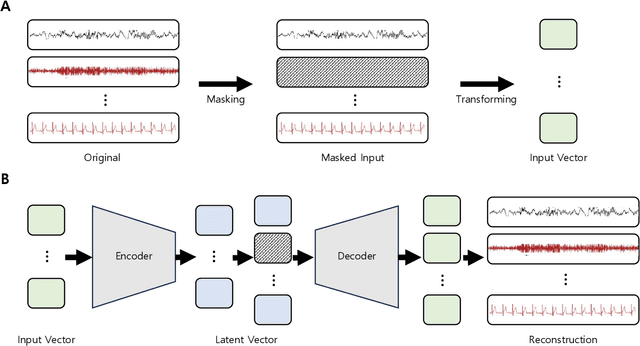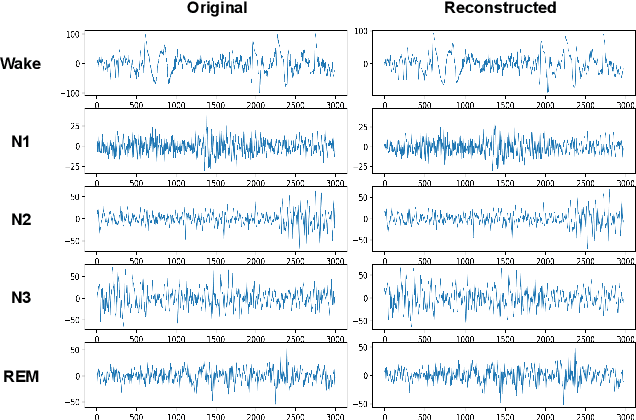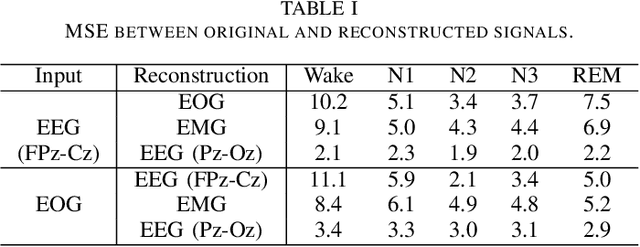Multi-Signal Reconstruction Using Masked Autoencoder From EEG During Polysomnography
Paper and Code
Nov 14, 2023


Polysomnography (PSG) is an indispensable diagnostic tool in sleep medicine, essential for identifying various sleep disorders. By capturing physiological signals, including EEG, EOG, EMG, and cardiorespiratory metrics, PSG presents a patient's sleep architecture. However, its dependency on complex equipment and expertise confines its use to specialized clinical settings. Addressing these limitations, our study aims to perform PSG by developing a system that requires only a single EEG measurement. We propose a novel system capable of reconstructing multi-signal PSG from a single-channel EEG based on a masked autoencoder. The masked autoencoder was trained and evaluated using the Sleep-EDF-20 dataset, with mean squared error as the metric for assessing the similarity between original and reconstructed signals. The model demonstrated proficiency in reconstructing multi-signal data. Our results present promise for the development of more accessible and long-term sleep monitoring systems. This suggests the expansion of PSG's applicability, enabling its use beyond the confines of clinics.
 Add to Chrome
Add to Chrome Add to Firefox
Add to Firefox Add to Edge
Add to Edge